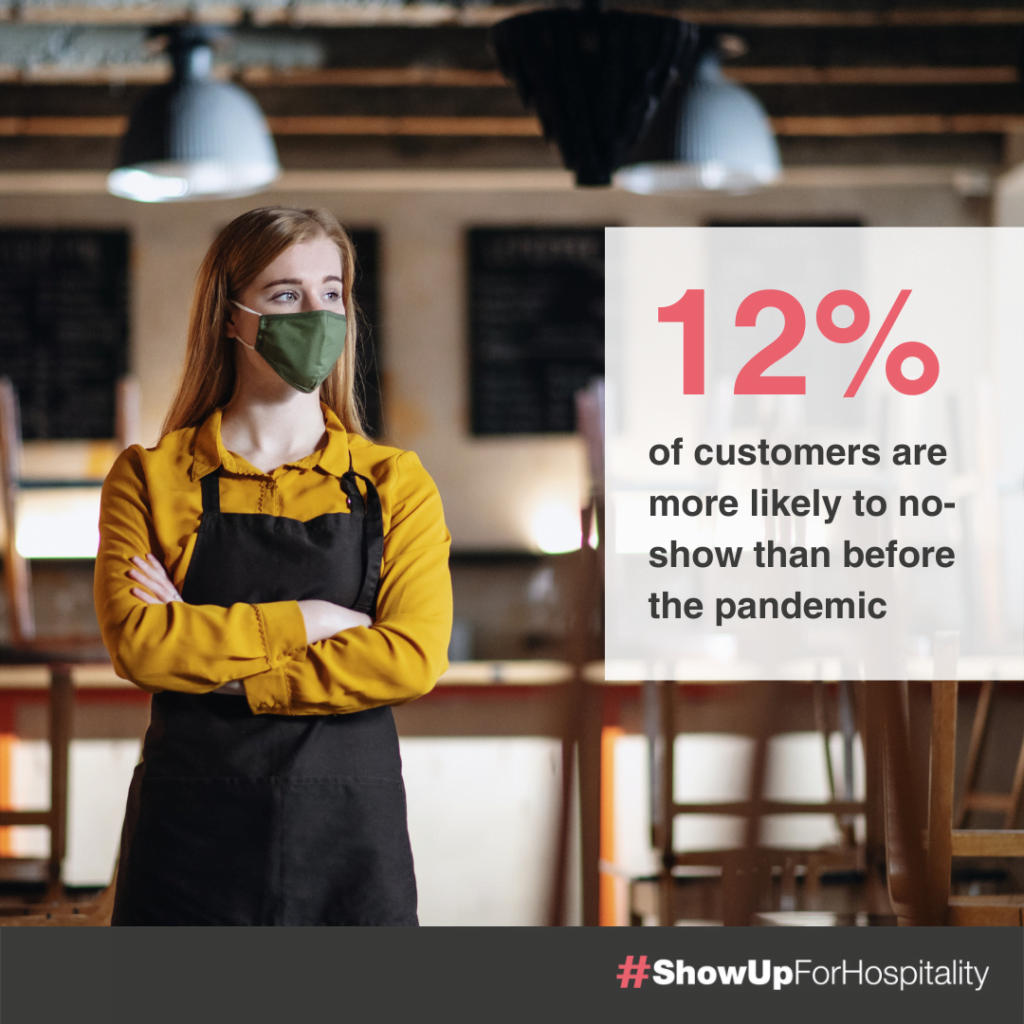Over the last year, 1 in 8 customers have failed to fulfil their booking promises. This has lead to over £17.6bn in lost revenue for the hospitality industry.
After starting the journey to recovery over the summer, the hospitality industry has dared to look further ahead to Christmas and beyond, as operators remain hopeful to see the return of the group bookings and parties that contribute to a huge slice of their annual profits
Since the hospitality sector reopened in April 2021, consumers have rushed back to pubs, restaurants, and bars across the UK, with over 60% of people having booked since venues reopened. Of course, this enthusiasm from consumers is much appreciated, however with increased bookings comes another issue that has been thrust back into the spotlight since closed signs have been flipped to open – customer no-shows.
Through our own insight and research and in partnership with CGA, we found that 14% of customers who made a booking, failed to turn up for it without so much as a phone call or an email to cancel. That’s one in eight people. Shockingly, we found the collective cost of these no-shows to the hospitality sector amounts to a staggering £17.6bn in lost revenue over the course of a year.

And that’s before we even mention the additional cost of potentially perished stock, overstaffed businesses and the loss of goodwill from the customers who do bother to show, and wonder why you have empty tables in prime positions. Or, worse still, are turned away because you are expecting the arrival of a profitable group booking.
#ShowUpForHospitality
The impact of this on businesses both big and small is monumental and one that must be addressed. That’s why we at Zonal we have launched the #ShowUpForHospitality campaign in partnership with Bums on Seats, UKHospitality and many other industry partners with the aim to unite the sector to tackle a very real problem.

Not only do we want to educate customers on the impact that no-shows have on operators, it’s also important that we support these businesses in mitigating the risk. What has become apparent is that there are many ways to build customer loyalty in order to prevent no-shows from occurring as frequently.
Technology can help venues grow their relationship with customers in many simple, yet effective ways. For example, a simple interaction such as sending a text or email to confirm a booking a few days ahead of customers’ arrival could make a world of difference – four in five consumers (83%) told us they prefer the personal touch and do not mind being contacted once they have made a booking.
And once you have started a digital interaction ahead of a booking you can maximise your opportunities to incentivise attendance through promotions, tailored events or loyalty perks.
Taking Deposits
Another method that can significantly reduce no-shows is taking a refundable deposit ahead of a booking. While many operators may instinctively feel taking cash in advance somehow goes against the spirit or traditions of hospitality, especially when it comes to casual dining, our recent research tells a different story post-pandemic..
It turns out a slight majority (51%) would be happy to pay a deposit or “no-show fee” to secure a table with you. Another option would be to open-up pre-orders for any booking (not just the big occasions), these days consumers are often happy to pre-pay for their selection and even view this as improving the overall experience.

It ultimately comes down to building loyalty and taking full advantage of the technology tools available. For operators that get it right, not only will Christmas be fully booked with tables that you can rely on but the foundations will have been laid for many more repeat visits.
Join the #ShowUpForHospitality campaign to make no-shows a thing of the past.

By Olivia FitzGerald, Chief Sales and Marketing Officer
Born out of hospitality more than 40 years ago, we are the largest tech supplier to pubs, restaurants, hotels and other hospitality businesses in the UK. A family business at heart, we care passionately about the hospitality industry.